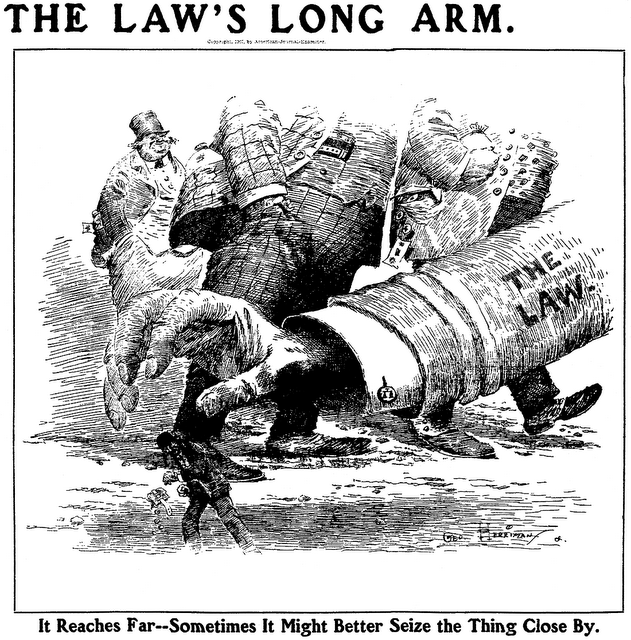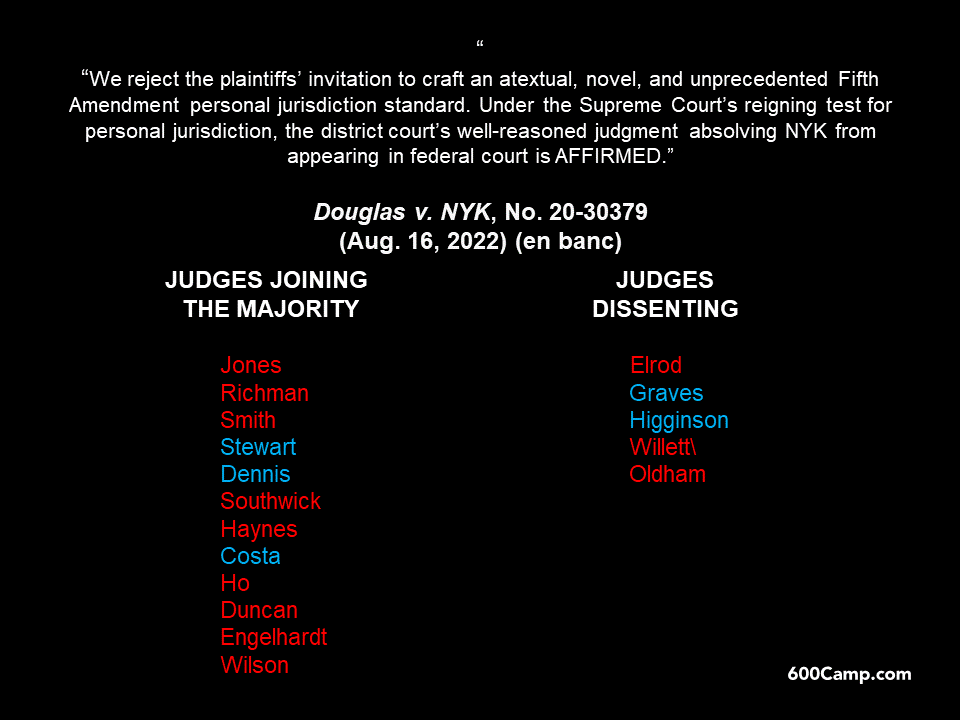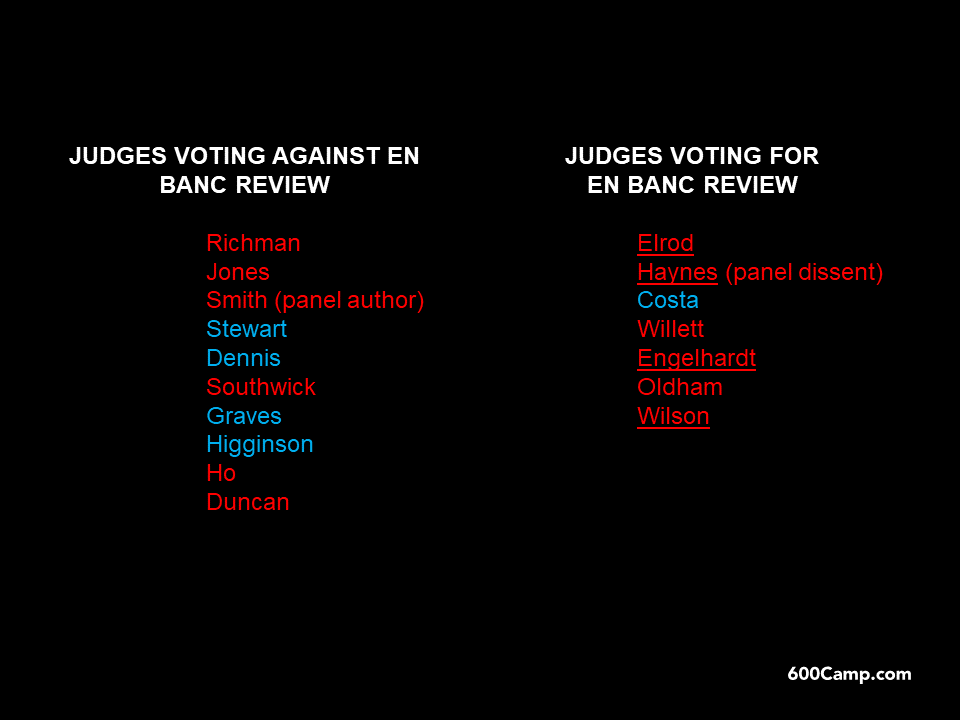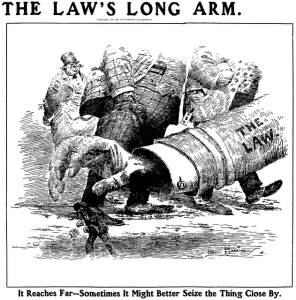Ritter, a resident of Texas, owned an insurance company in the Cayman Islands. Litigation broke out, in Texas, between Ritter and the Cayman-based entity that managed the insurance company. Ritter sought to join a Cayman-based bank to the Texas case, arguing that it failed to detect the manager’s wrongdoing. The district court dismissed for lack of personal jurisdiction and the Fifth Circuit affirmed. Monkton Ins. Servs. v. Ritter, No. 13-50941 (Sept. 26, 2014). The case is notable as one of the first applications by the Circuit of two 2014 Supreme Court cases about personal jurisdiction.
First, as to general jurisdiction, applying Daimler AG v. Bauman, 134 S. Ct. 746 (2014), the Court observed: “It is . . . incredibly difficult to establish general jurisdiction in a forum other than the place of incorporation or principal place of business.” The Court also reminded that a “sliding scale” analysis about the jurisdictional effect of a defendant’s website “is not well adapted to the general jurisdiction inquiry, because even repeated contacts with forum residents by a foreign defendant may not constitute the requisite substantial, continuous and systematic contacts required for a finding of general jurisdiction—in other words, while it may be doing business with Texas, it is not doing business in Texas.” (quoting Revell v. Lidov, 317 F.3d 467, 471 (5th Cir. 2002) (citing Zippo Mfg. Co. v. Zippo Dot Com, Inc., 952 F. Supp. 1119 (W.D. Pa. 1997)).
Second, as to specific jurisdiction, the Court noted that Walden v. Fiore, 134 S. Ct. 1115 (2014), emphasized that a plaintiff’s unilateral actions with respect to the forum cannot create personal jurisdiction. Here, the bank transactions at issue were initiated by Ritter, running afoul of this principle. The Court also found no abuse of discretion in denying jurisdictional discovery.
 Inspired by a recent Seventh Circuit case involving similar facts (and the benefit of jurisdictional discovery), the Fifth Circuit reheard Ethridge v. Samsung and concluded that there was not personal jurisdiction in Texas over the plaintiff’s claim to have been injured by a flammable battery made by Samsung.
Inspired by a recent Seventh Circuit case involving similar facts (and the benefit of jurisdictional discovery), the Fifth Circuit reheard Ethridge v. Samsung and concluded that there was not personal jurisdiction in Texas over the plaintiff’s claim to have been injured by a flammable battery made by Samsung.




























